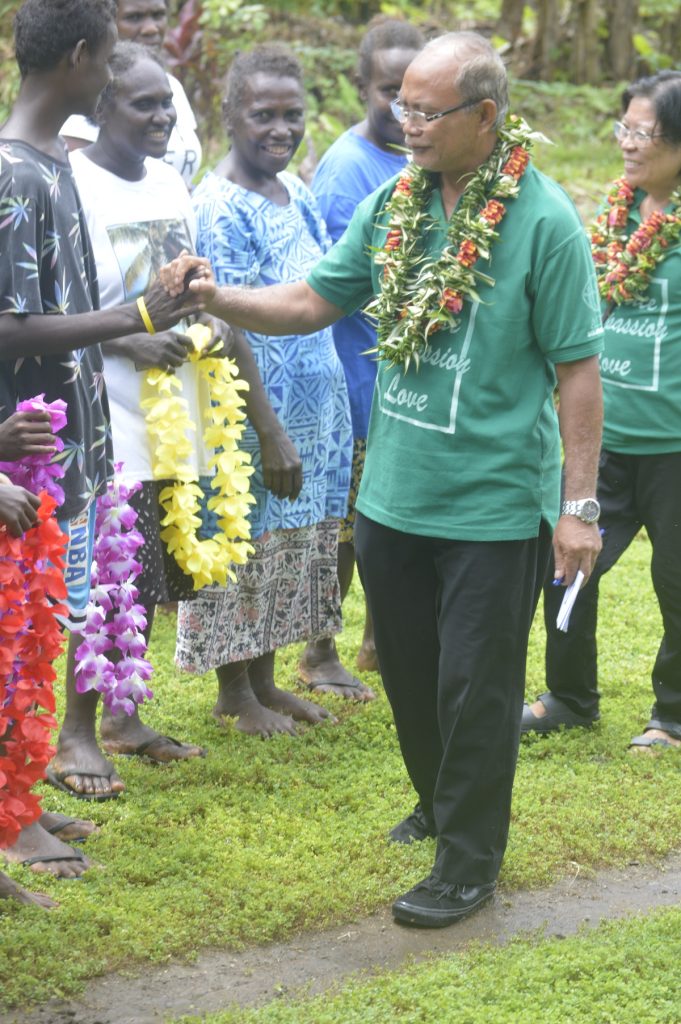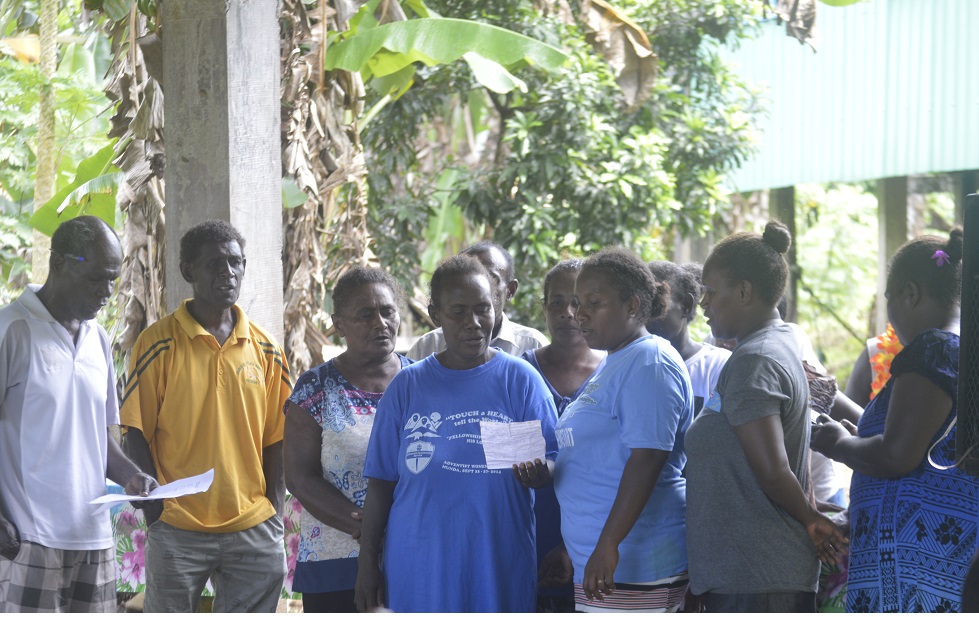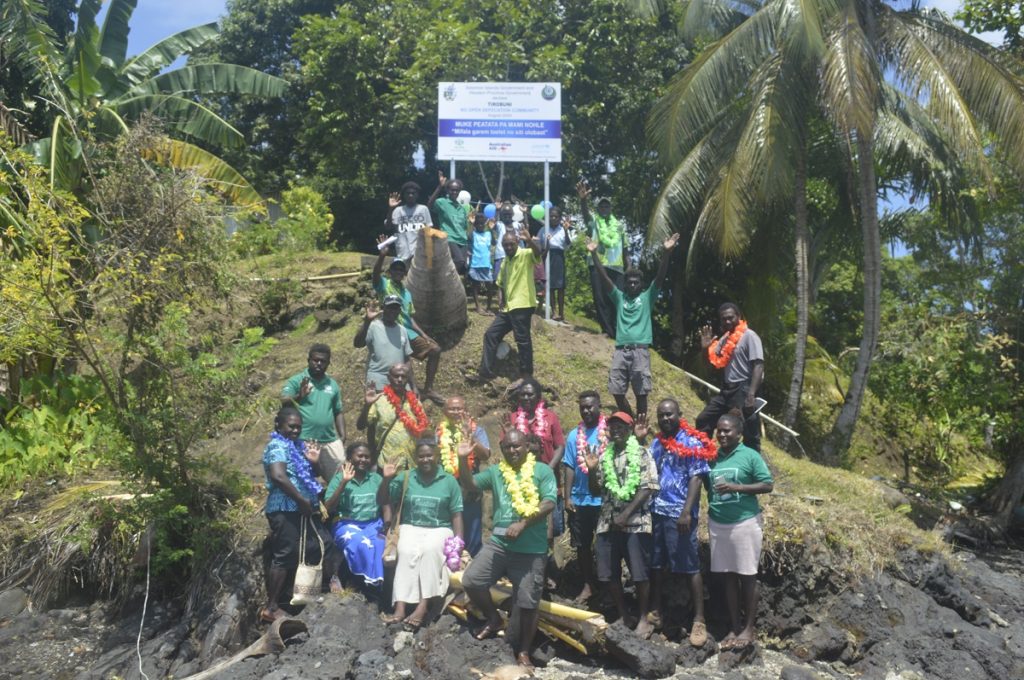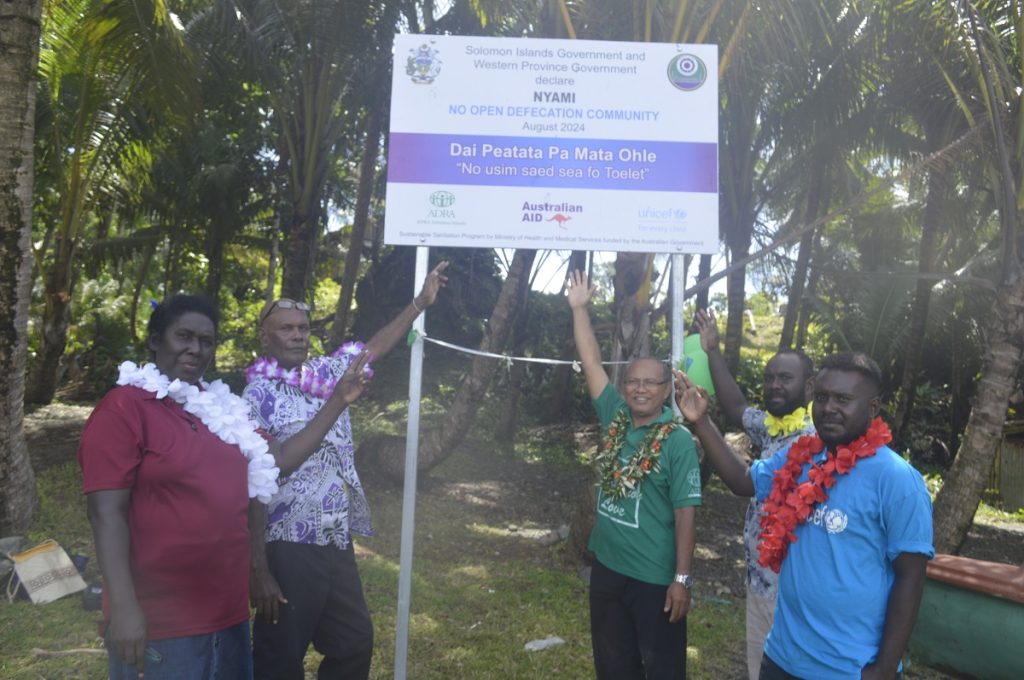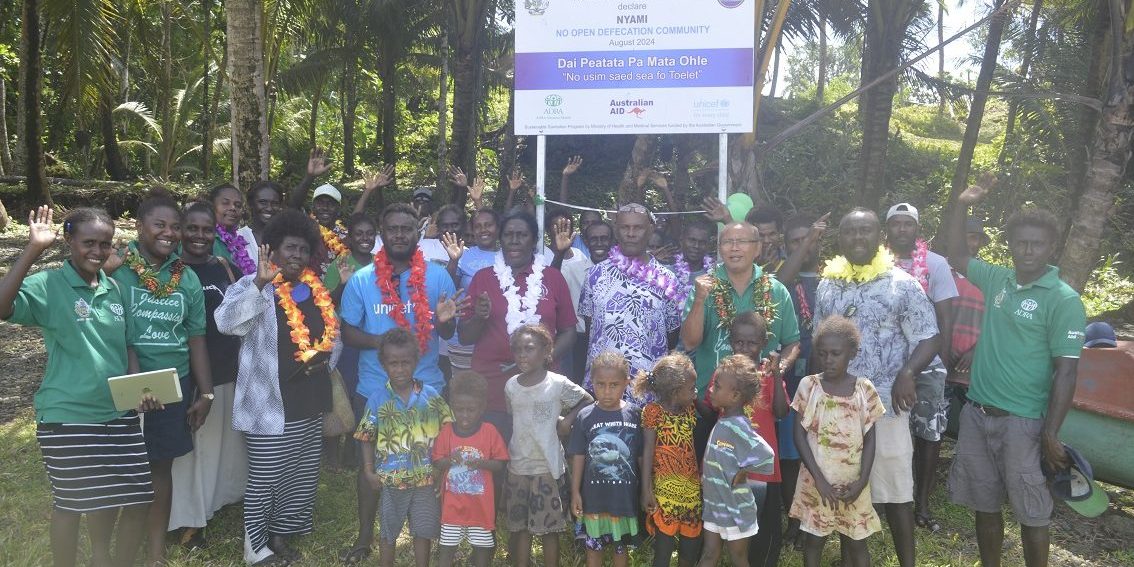Three communities in Rannoggah, Western Province have been declared ‘Non-Open Defecation’ (NOD) status after they successfully completed and formally launched their sanitation projects.
The three communities are; Pidaka and Nyami in Central Ranoggah and Tirobuni in Buri, North Rannoggah.
The projects were handed over two separate days.
On Tuesday 27th August and Wednesday 28th August they celebrated the major milestone with pride and optimism in their public health journey.
The sanitation projects were made possible under the National Sustainable Sanitation Plan (NSSP).
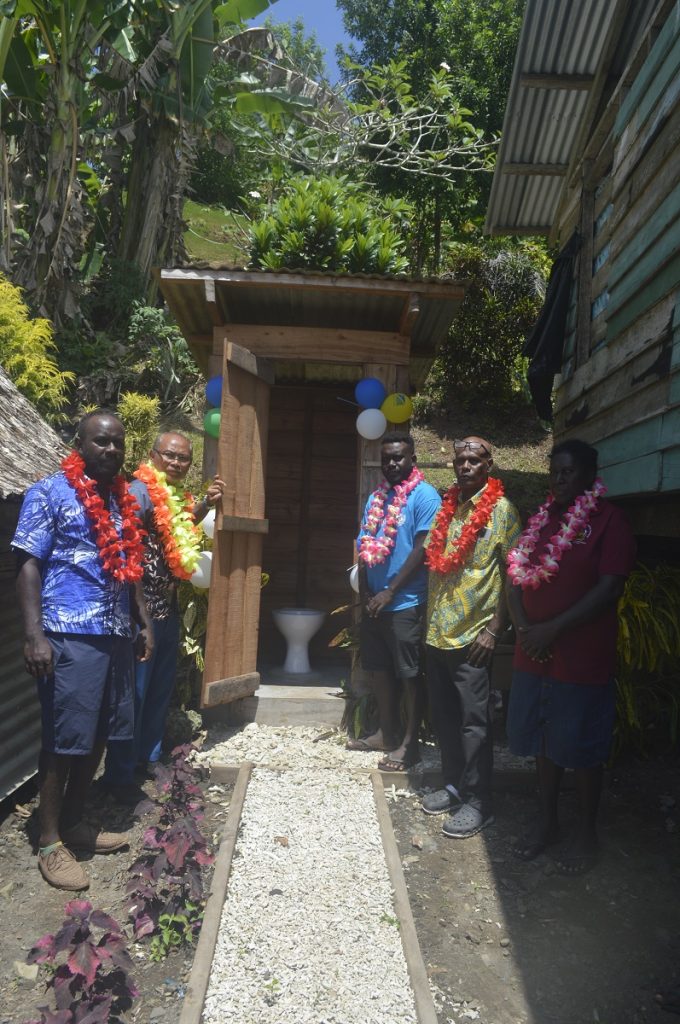
The celebration began on Tuesday at Pidaka and Nyami communities.
On Wednesday it was at Tirobuni, where the community celebrated the completion and handing over of sanitation projects for each household, symbolizing their commitment to eliminating open defecation.
Several distinguished guests were present during the handing over of the three projects.
They included; Leyn Gantare – Country Manager of Adventist Development Relief Agency (ADRA) and his team; Western Provincial Health Minister George Kenneth; UNICEF representative Junior Alfred Rauka; and Provincial Health Inspector Rendy Solomon, chiefs, elders and communities.
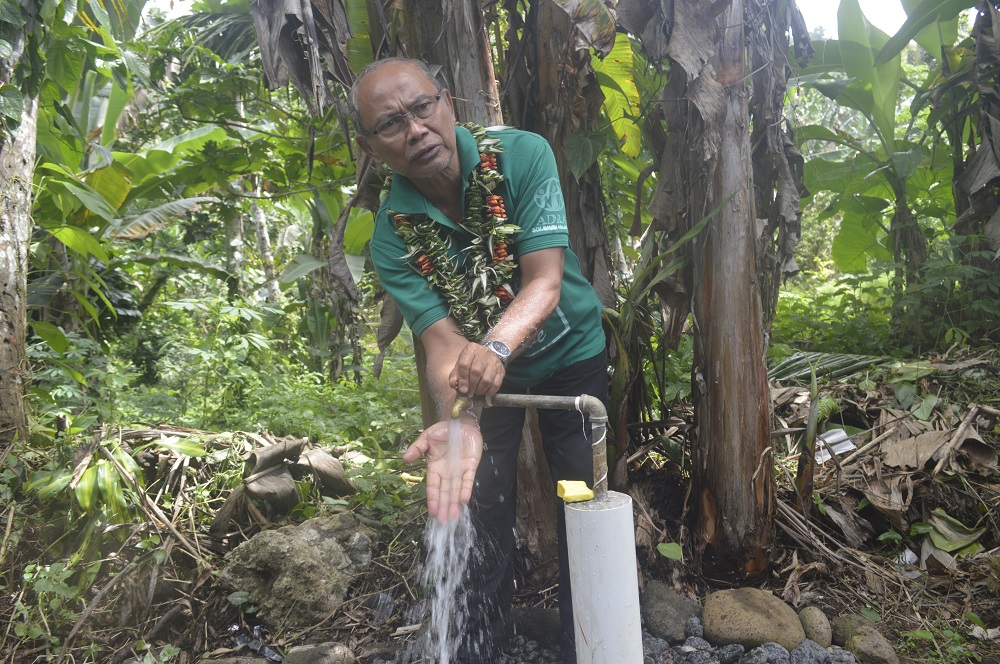
In his address during the official opening, ADRA Country Manager Gantare expressed his appreciation for the communities’ dedication to improving public health and hygiene.
He emphasized that the handover of NOD certificates represents more than just a project completion is a testament to the communities’ hard work, willingness to embrace change, and commitment to a sustainable future.
“We are so happy, ADRA is so happy, because the communities are happy with this new change and milestone.
“This is a significant achievement for Pidaka, Nyami, and Tirobuni. Take good care of these facilities,” Gantare said.
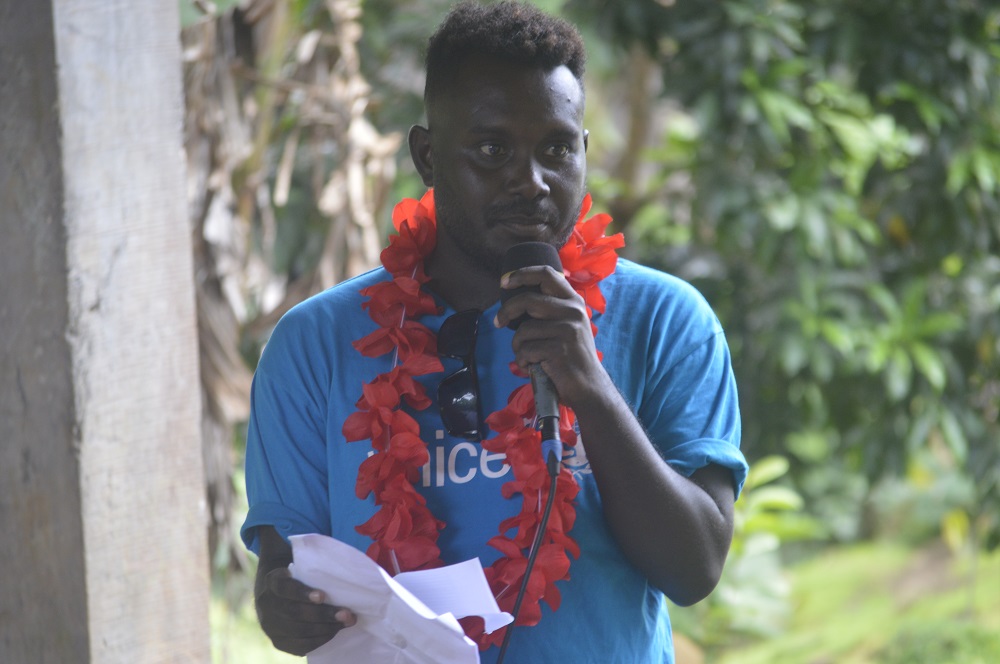
UNICEF Provincial Sanitation & Hygiene Coordinator, Alfred Junior Rauka, highlighted the broader implications of improved sanitation.
He noted that access to proper sanitation goes beyond just toilets; it is about creating a hygienic environment that prevents disease and malnutrition, which are critical for overall development.
“While some parts of the world have seen improvements in sanitation, millions of children in poor rural areas are still left behind,” Rauka said.
He said, lack of sanitation can be a barrier to individual prosperity and sustainable development.
“When children, especially girls, cannot access private and decent sanitation facilities in their communities, their right to education is threatened,” he said
He further congratulated the three communities on their achievement, recognizing the hard work and commitment that led to this milestone.
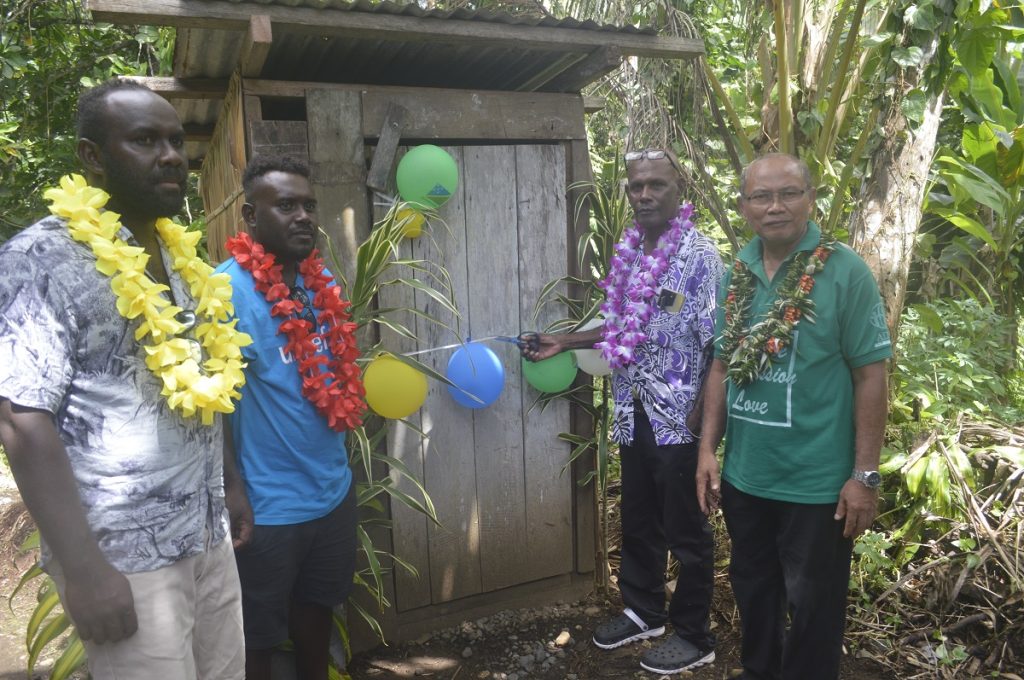
Member of the Provincial Assembly (MPA) for Ward 5, Central Rannoggah, Raynix Sigoto, also expressed his gratitude and delight at the successful completion of the projects.
He acknowledged that the launching marked another important milestone for NSSP in the province.
“This is an important program through the Ministry of Health and Medical Services – RWASH to improve behavioral practices in the communities and ensure access to improved sanitation,” MPA Sigoto said.
With the declaration of NOD status and completion of NSSP Project Phase 2, every household in the three communities now have access to proper sanitation facilities, representing a significant leap forward in public health.
The Sustainable Sanitation Project is an initiative by UNICEF and the Ministry of Health and Medical Services (MHMS) support program, funded by the Australian Government, with ADRA serving as the project implementer.
This achievement underscores the collective effort and commitment to ensuring a healthier future for the people of Rannoggah and Western province as a whole.
The event closed with feasting, entertainments and presentations of gifts.
By Ulutah Gina
Solomon Star, Gizo
